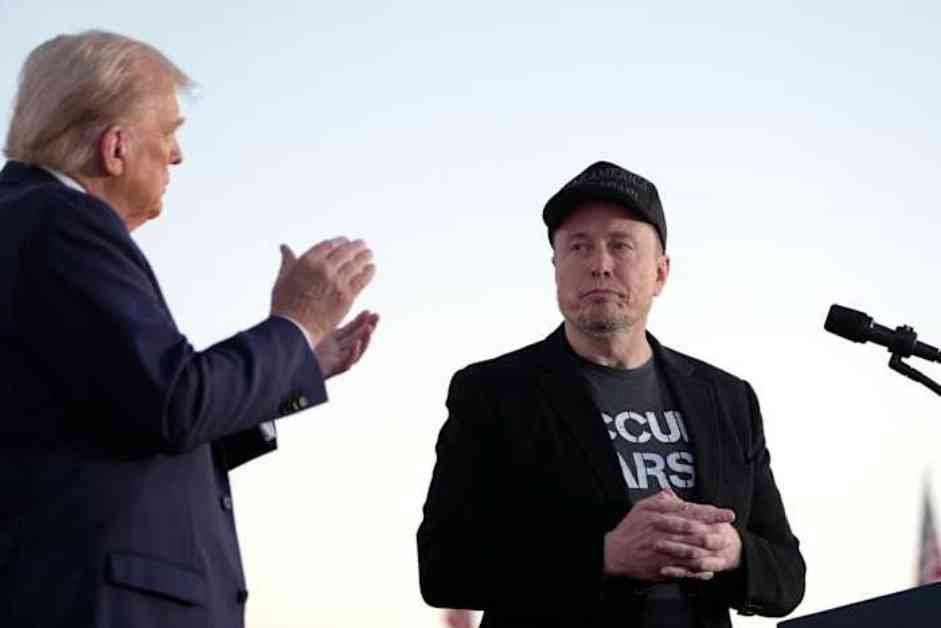Elon Musk’s Controversial Access to Treasury Department Records Sparks Nationwide Debate
In a recent turn of events, a federal judge made a pivotal decision in response to a lawsuit filed by 19 Democratic attorneys general against President Donald Trump. The lawsuit centered around the alleged unauthorized access granted to Elon Musk’s Department of Government Efficiency (DOGE) to sensitive Treasury Department records containing personal information of millions of Americans. This move has sparked widespread concern over privacy and security issues, as well as the potential impact on federal funding for essential programs.
The Treasury Department’s central payment system, responsible for managing tax refunds, Social Security benefits, veterans’ benefits, and other crucial financial transactions, is the focal point of this controversy. The lawsuit claims that allowing DOGE access to this system violates federal law and could lead to unauthorized freezes in federal funds that many Americans rely on for vital services.
U.S. District Judge Paul A. Engelmayer, appointed by President Barack Obama, issued a preliminary injunction barring Musk’s team from accessing any Treasury Department records containing sensitive personal data since Jan. 20. This decision underscores the gravity of the situation and aims to prevent any potential misuse of this confidential information.
New York Attorney General Letitia James, a vocal critic of the Trump administration, emphasized the security risks posed by DOGE’s access to sensitive Treasury data. She raised concerns about the unauthorized use of this information to block payments that are essential for millions of Americans, such as healthcare and childcare benefits. James’s strong stance against this breach of privacy highlights the broader implications of allowing a private entity such as DOGE to handle sensitive government data.
The lawsuit, joined by a coalition of states including Arizona, California, Colorado, and others, argues that DOGE’s actions could disrupt Congressionally approved funding and violate established administrative law and constitutional principles. The case also questions the legality of Treasury Secretary Scott Bessent’s decision to alter data protection policies to accommodate DOGE’s inquiries into the payment system.
Connecticut Attorney General William Tong expressed grave concerns about the potential consequences of DOGE’s access to Treasury records, calling it “the largest data breach in American history.” He raised questions about the motives behind DOGE’s review of confidential information and highlighted the risks associated with allowing an unauthorized entity to navigate critical payment systems.
The Treasury Department has maintained that the review process initiated by Musk’s team is aimed at evaluating system integrity and has not resulted in any policy changes thus far. However, the scrutiny surrounding DOGE’s activities has prompted Democratic lawmakers to call for a formal investigation into the matter, citing concerns about the legality and implications of allowing a private entity access to sensitive government data.
Labor unions and advocacy groups have also taken legal action to block the payment system review, citing concerns about the potential misuse of confidential information and the legality of DOGE’s involvement. A recent court ruling in Washington temporarily restricted access to Treasury employees with limited privileges, underscoring the complexity and controversy surrounding this issue.
As the debate over Elon Musk’s access to Treasury Department records continues to unfold, it raises fundamental questions about privacy, security, and government oversight. The outcome of this legal battle will not only impact the future of data protection but also set a precedent for the boundaries of private sector involvement in government operations. The need for transparency, accountability, and respect for legal protocols remains paramount in navigating this complex and contentious issue.















